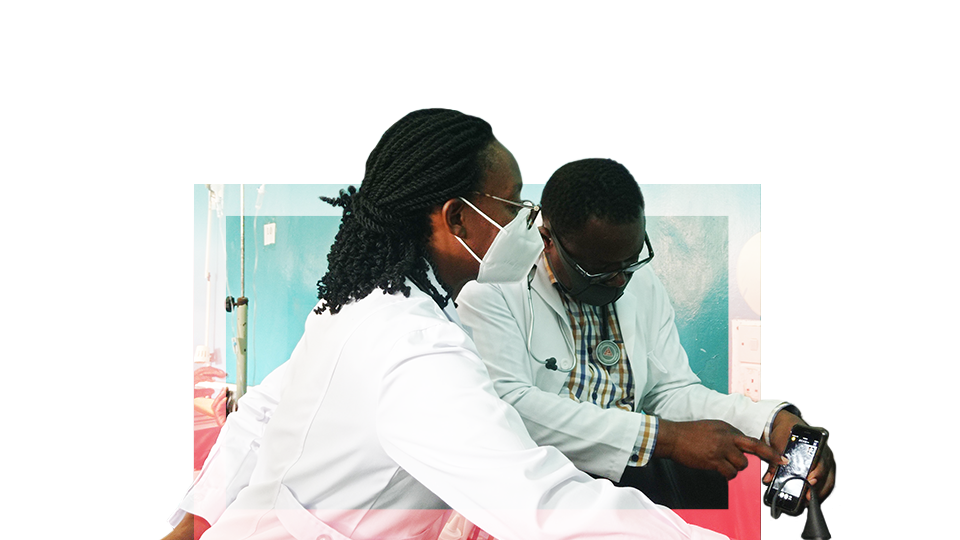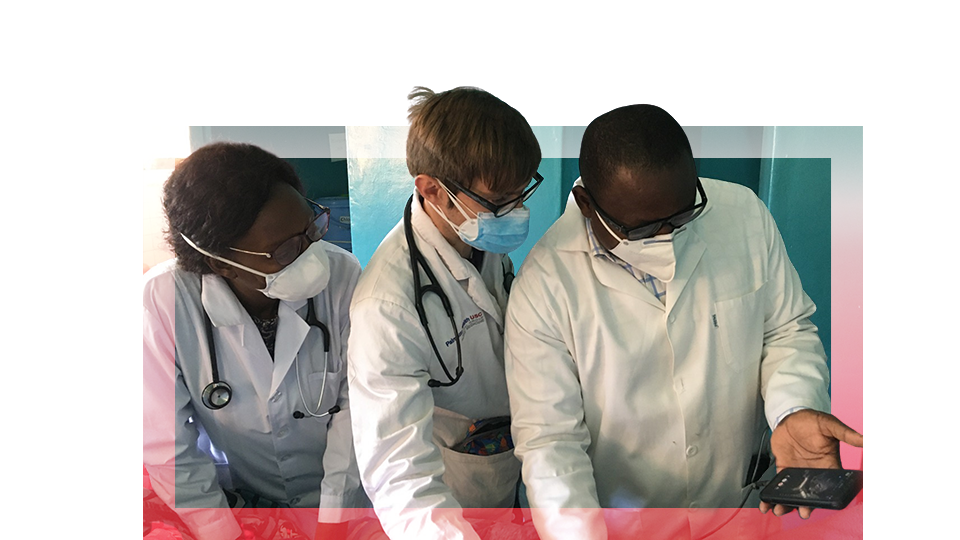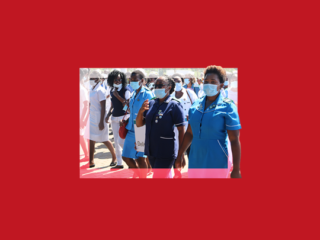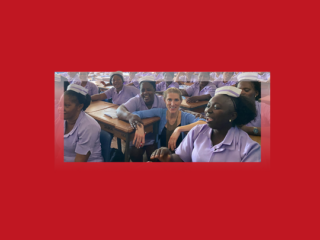Strengthening Primary Care
ZAMBIA
Despite its known benefits, diagnostic ultrasound is not equitably accessible around the world. For resource-limited countries, especially those with critical shortages in human resources for health, the need for trained practitioners and equipment to perform quality scans has prevented millions of people from accessing essential diagnostic and screening services.
Fortunately, recent advances in ultrasound technology have resulted in devices that are small enough to fit in a clinician’s pocket and be held in a single hand, while still producing quality images. This has spurred a new movement in medical imaging innovation known as “point-of-care ultrasound” (POCUS). The portability of this new technology allows ultrasound to be used in areas previously considered too remote or having limited resources to support their use. Equipping frontline health workers with the clinical skills and expertise to leverage these tools could have far-reaching impacts on care quality and accessibility.

“On the wards and in clinical rounds, we see tremendous possibilities for this type of technology. We are already seeing the impact that just one pocket ultrasound can have in a facility. With just this limited experience, it is exciting to envision the impact we might have, not only on individual patients, but in scaling up the family medicine discipline and adoption of POCUS across Zambia.”

Since January, Seed has integrated POCUS training into the family medicine curriculum at the University of Zambia (UNZA). These skills workshops have been transformative. “Every time we have scheduled supervised scanning opportunities—usually Tuesday mornings at Chilenje Hospital—Dr. Kunka [Family Medicine Registrar] is there early, having already selected a list of patients who would benefit from a diagnostic scan,” Dr. Matthew Haldeman, a Seed Educator, said. “He is now skilled in POCUS and has assembled a large portfolio of diverse ultrasound images ranging from echocardiograms to liver scans.” Dr. Kunka’s diagnostic images at the patient’s bedside have led to numerous lifesaving interventions.

Sharing Knowledge
In collaboration with UNZA and Chilenje District Hospital, Seed-supported educators have facilitated educational webinars for medicine and nursing faculty and trainees at Seed partner institutions in Malawi and Uganda on the use of POCUS in management of patients with COVID-19 and strategies for management of PPE during the pandemic.

